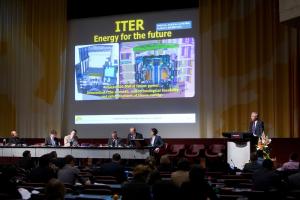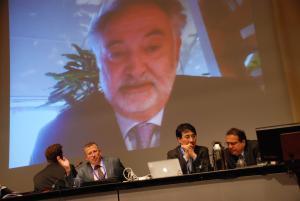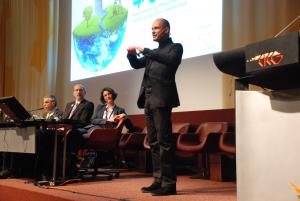Twenty-seven years after the leaders of the United States and the Soviet Union, Ronald Reagan and Mikhail Gorbachev, met on the Swiss shore of Lake Geneva to agree on an international effort to develop fusion energy "as an inexhaustible source of energy for the benefit of mankind," the ITER Project—born that day—entered the stage again.
The
International Congress on Energy Security in Geneva last week attracted the representatives of many organizations and institutions that either analyze energy demand or are very directly involved in its supply. The stakes are high—a point stressed by every speaker during this two-day event.
"The era of cheap and abundant energy is soon ending," said ITER Director-General Osamu Motojima, who had been invited to deliver the keynote speech. "The advantages of fusion energy, although not easy to achieve, are considerable. The universal availability of the fusion fuels will contribute to easing the international tensions that energy supply and demand currently generate."
"Energy security, is, in all its aspects, a key issue for the international community," UN under-secretary-general Kassym-Jomart Tokayev added in his opening remarks. "International organizations, industry, civil society, and governments must partner to meet this challenge, so that the vast opportunities of the modern world are available to everybody. And, of course, for these opportunities to be truly available to everybody they must be approached in a sustainable fashion."
One of the major questions addressed at this energy summit was the future of nuclear energy. Where and how will nuclear energy position itself in the new world order that was shaped on 11 March 2011? "Fukushima changed it all," said Hans Püttgen, director of the Energy Center in Lausanne. "The race to get out of nuclear first is on."




